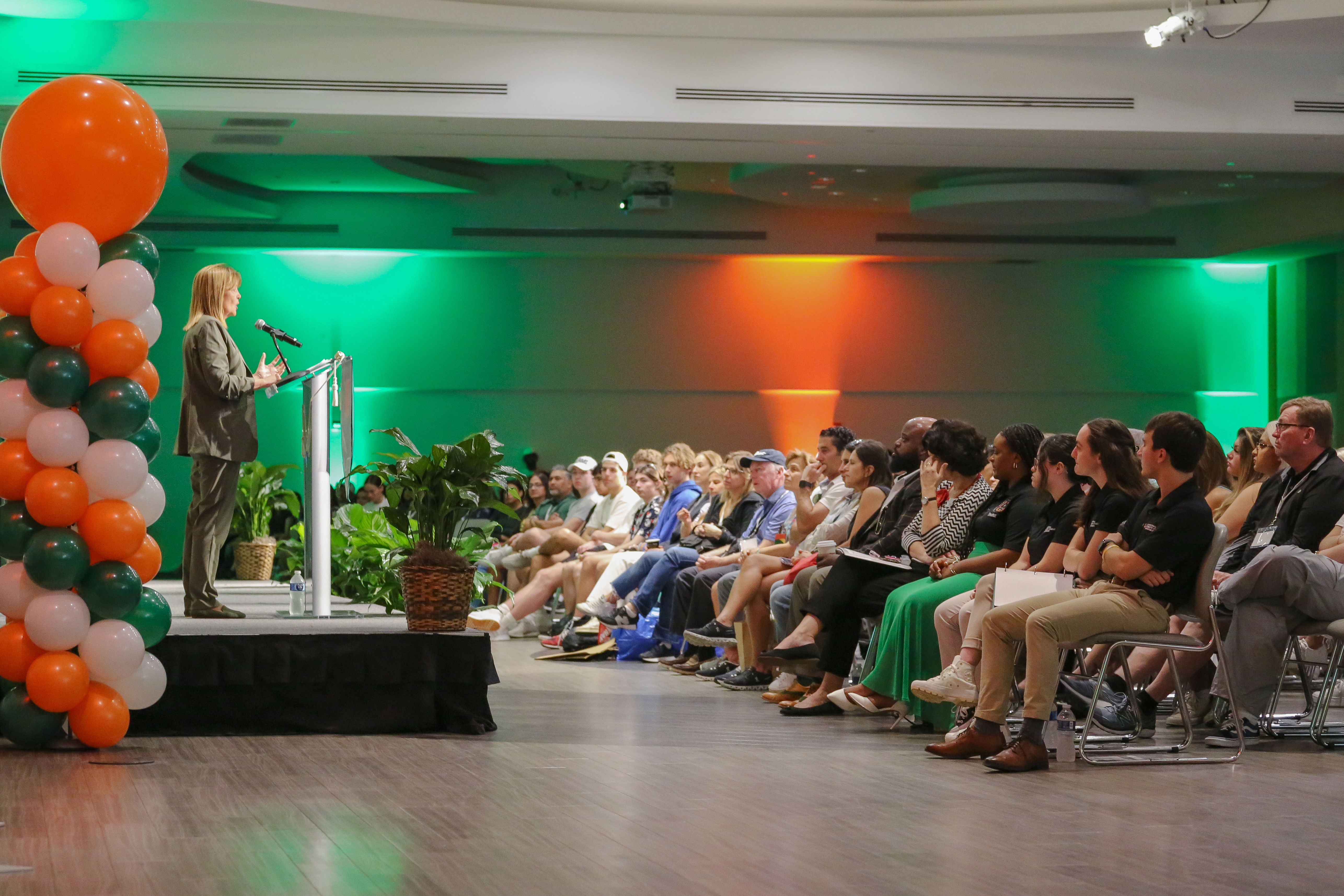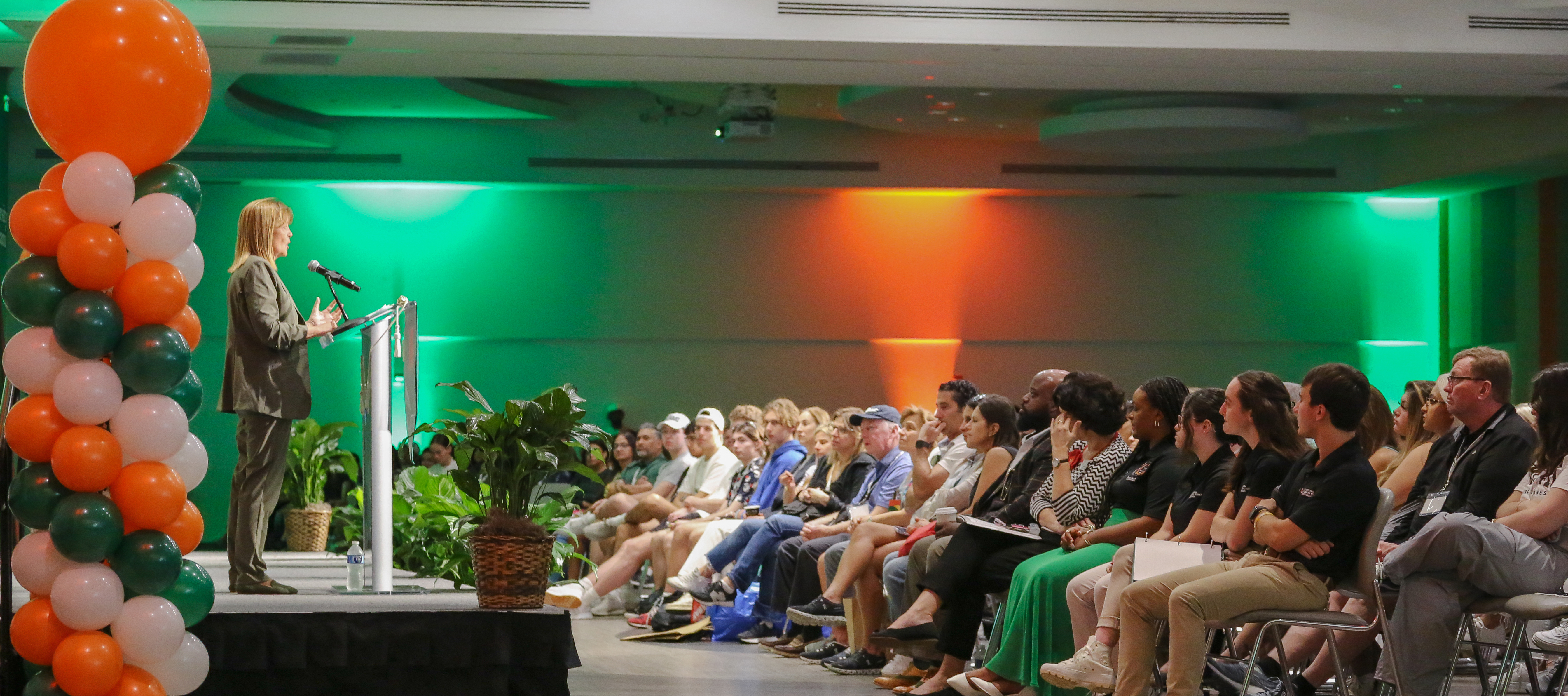The University of Miami Division of Student Affairs and Alumni Engagement employs a comprehensive strategic approach focused on delivering exceptional programs, services, and facilities that transform the student experience.
Our strategy builds on our institutional strengths while planning strategically for emerging opportunities. We prioritize measurable student outcomes and retention through synergistic connections that drive continuous improvement and administrative excellence.
We directly advance the University's Mission-Based Strategy by creating transformational experiences that combine exemplary learning opportunities, proactive student support, and an inclusive community where every student can thrive and succeed.





